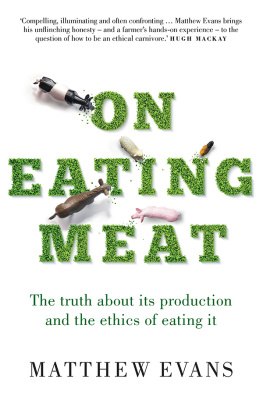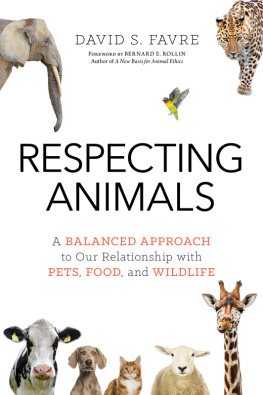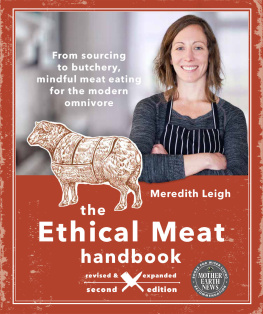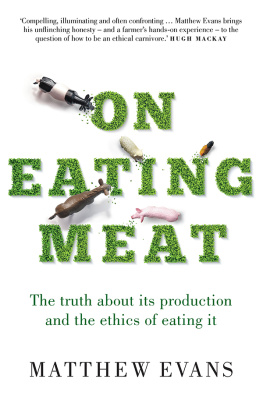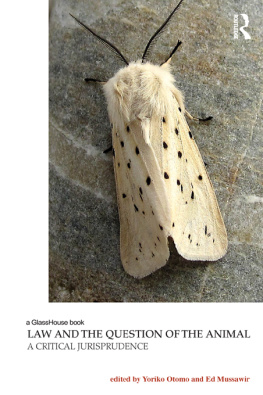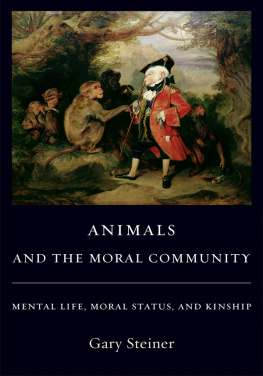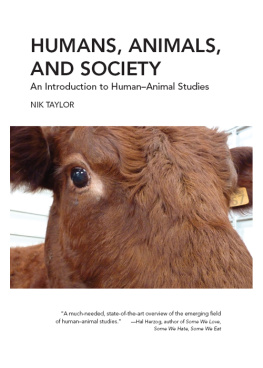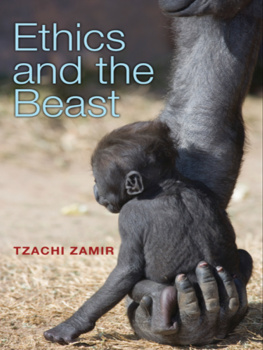Eat This Book
Critical Perspectives on Animals: Theory, Culture, Science, and Law
Critical Perspectives on Animals: Theory, Culture, Science, and Law
Series Editors: Gary L. Francione and Gary Steiner
The emerging interdisciplinary field of animal studies seeks to shed light on the nature of animal experience and the moral status of animals in ways that overcome the limitations of traditional approaches. Recent work on animals has been characterized by an increasing recognition of the importance of crossing disciplinary boundaries and exploring the affinities as well as the differences among the approaches of fields such as philosophy, law, sociology, political theory, ethology, and literary studies to questions pertaining to animals. This recognition has brought with it an openness to rethinking the very terms of critical inquiry and the traditional assumptions about human being and its relationship to the animal world. The books published in this series seek to contribute to contemporary reflections on the basic terms and methods of critical inquiry by focusing on fundamental questions arising out of the relationships and confrontations between humans and nonhuman animals, and ultimately to enrich our appreciation of the nature and ethical significance of nonhuman animals by providing a forum for the interdisciplinary exploration of questions and problems that have traditionally been confined within narrowly circumscribed disciplinary boundaries.
The Animal Rights Debate: Abolition or Regulation? Gary L. Francione and Robert Garner
Animal Rights Without Liberation: Applied Ethics and Human Obligations, Alasdair Cochrane
Experiencing Animal Minds: An Anthology of AnimalHuman Encounters, edited by Julie A. Smith and Robert W. Mitchell
Animalia Americana: Animal Representations and Biopolitical Subjectivity, Colleen Glenney Boggs
Animal Oppression and Human Violence: Domesecration, Capitalism, and Global Conflict, David A. Nibert
Animals and the Limits of Postmodernism, Gary Steiner
Being Animal: Beasts and Boundaries in Nature Ethics, Anna L. Peterson
Flight Ways: Life and Loss at the Edge of Extinction, Thom van Dooren

Columbia University Press
Publishers Since 1893
New York Chichester, West Sussex
cup.columbia.edu
Apologie du carnivore 2011 Les Editions Fayard
English translation 2016 Columbia University Press
All rights reserved
Library of Congress Cataloging-in-Publication Data
Lestel, Dominique.
[Apologie du carnivore. English]
Eat this book : a carnivores manifesto / Dominique Lestel ; Translated by Gary Steiner.
pages cm. (Critical perspectives on animals : theory, culture, science, and law)
Includes bibliographical references.
ISBN 978-0-231-17296-7 (cloth : alk. paper) ISBN 978-0-231-17297-4 (pbk. : alk. paper) ISBN 978-0-231-54115-2 (e-book)
1. MeatMoral and ethical aspects. 2. VegetarianismMoral and ethical aspects. 3. Human-animal relationships. 4. Animal welfare. I. Title.
TX371.L4713 2016
641.3'6dc23
2015028156
A Columbia University Press E-book.
CUP would be pleased to hear about your reading experience with this e-book at cup-ebook@columbia.edu.
COVER DESIGN: Milenda Nan Ok Lee
COVER ART: iStockphoto
References to websites (URLs) were accurate at the time of writing. Neither the author nor Columbia University Press is responsible for URLs that may have expired or changed since the manuscript was prepared.
Just as philosophy begins with doubt, a human life worth living begins with irony.
Sren Kierkegaard
Contents


How can one possibly reconcile the seeming contradiction between the proposition that we human beings are bound together with animals in a condition of mortality and vulnerability and the proposition that we human beings have an affirmative obligation to eat meat? How can one sincerely claim to love and respect animals but also maintain that eating meat is not only permissible but downright obligatory? This question lies at the core of Dominique Lestels reflection on the question of the animal, a question that has never had more urgency than it has today. In this connection, I am reminded of Heideggers trenchant observation that questioning is the piety of thinkingthat what is at stake in the task of critical reflection is not so much the ascertaining of definitive answers as an appreciation of, a dwelling within, and a willingness to endure the discomfort of questions that leave us feeling threatened and uncertain. For I am made extremely uncomfortable by Lestels suggestion that meat eating in some form is a human obligation, and yet I also feel a responsibility to confront the many questions that his suggestion raises, all of which devolve upon one singular questionthe question of the animal.
In contemporary as well as in historical thought, this question has taken many different forms and raised many additional questions: What is animality? Is there one underlying essence that constitutes or defines animality or rather an irreducible multiplicity of manifestations of it? Are there any definitive, or even provisional, differences between human beings and nonhuman animals? On what grounds have so many people, in so many different cultures, considered human beings to be fundamentally superior to animals? (On what grounds, for that matter, do so many people think of human beings as not being animals?) On what grounds have so many people, for such a long time, treated animals as little more than resources to be used at our whim? Why do so many of us exhibit utter indifference to the exploitation and suffering of billions of animals every year? Why do we treat our pets so well but view so many other animals as expendable resources? Are there cultures that assert a fundamental parity or kinship between human beings and animals rather than seek to assert a fundamental human superiority? And if there are, why have these cultures not been more influential in humanitys historical reflections on questions of humanity, animality, and the relationship between the two? Can any sense be made of the proposition that we share an existential kinship with animals but that we nonetheless owe it to ourselves and to them to kill and eat animals, at least under certain circumstances?
Lestels answer to the last question is yes. The central argument of Eat This Book: A Carnivores Manifesto is that, as counterintuitive as it may sound, the only way to do genuine justice to animals, the only way to repay the infinite debt we owe animals, is to engage in what Lestel calls ethical carnivorism. Human beings and animals share a common fate: to be mortal, to be vulnerable, and to be able to exist only on the basis of the death and consumption of other living beings. Now one might suppose that the best way to do justice to animals would be to refrain from killing and consuming them; after all, we have long considered a peaceful, non-violent existence to be preferable to a destructive one. From the parable of the Garden of Eden to the Golden Age story proffered by the likes of Hesiod and Ovid, our culture has long claimed that the essence of humanity consists in its ability to rise above the violence and destructiveness of wild nature and establish civilization on the principle of nonviolence and mutual respect. From this it would appear to be a short step to the conclusion that if we truly care for animals and see them as our kin, the best thing we could do to demonstrate our concern and respect for them would be simply to leave them aloneat the very least to eschew altogether the consumption of meat and perhaps all other animal products as well. Ethical vegetarians and vegans take the view that it is cosmically unfair to include only human beings and to exclude animals from an ethic of nonviolence. Not only logical consistency but genuine respect for animals demands that we practice nonviolence toward them just as we at least purport to practice nonviolence toward our fellow human beings.
Next page

